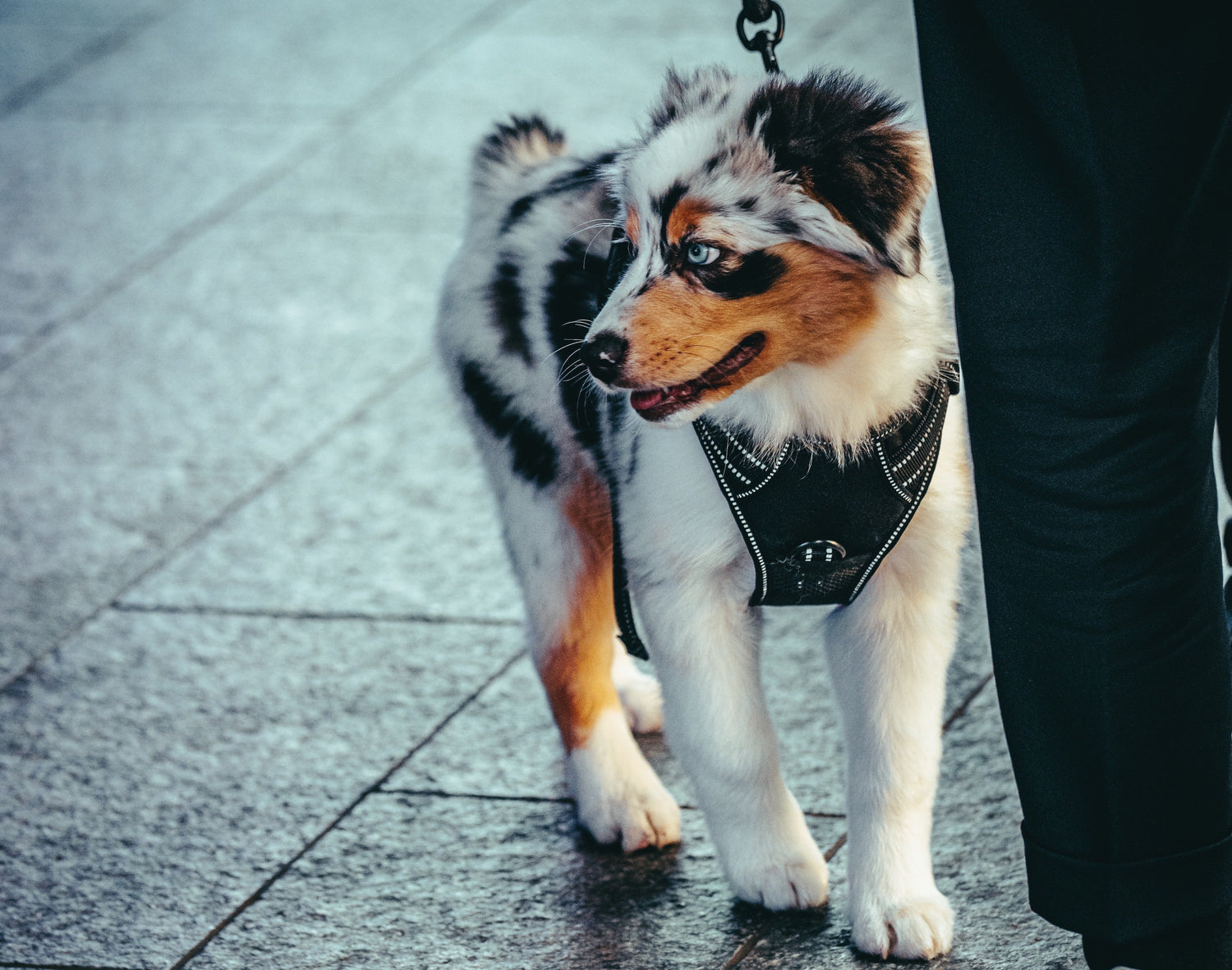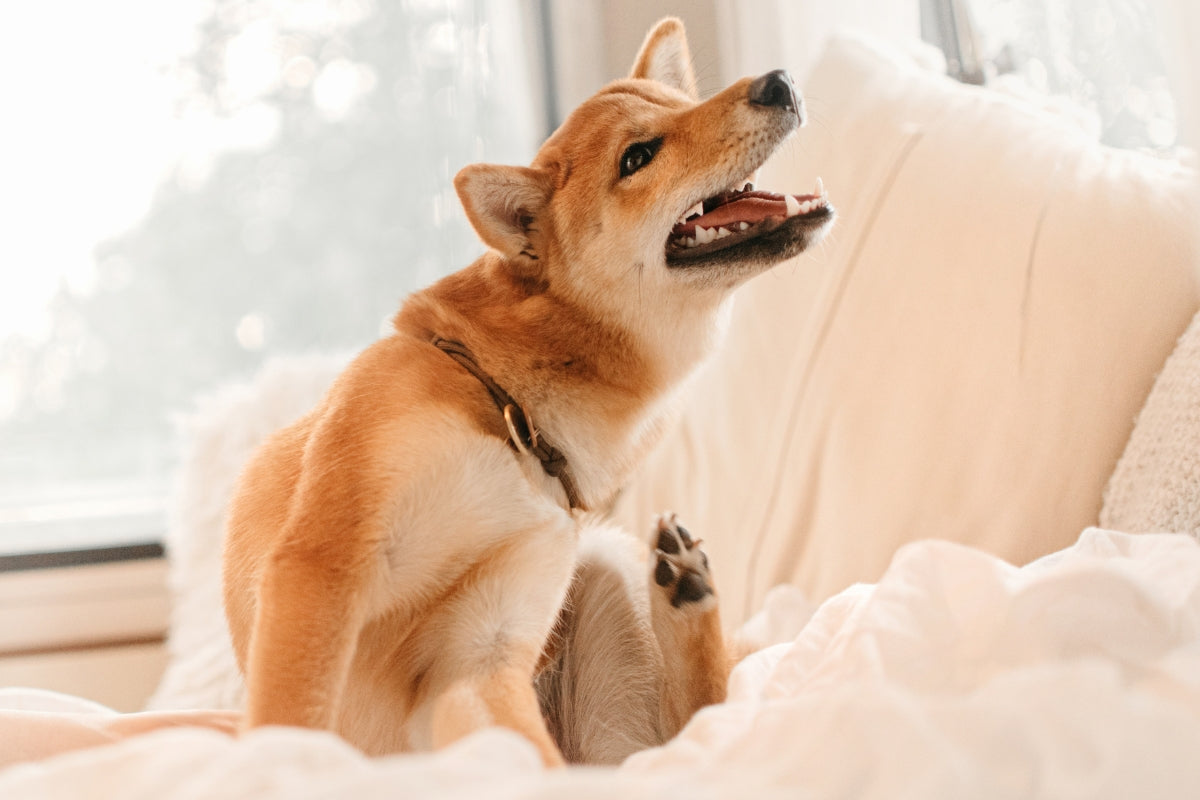Some dogs are very affectionate with their family at home, but become incredibly fearful and withdrawn when approached by a stranger in public. This may be due to their breed, individual personality or a past traumatic event.
If your dog is uncomfortable around strangers, here are some tips to help them feel more at ease in public.
How to tell if your dog feels uneasy?
Dogs may communicate their stress and discomfort in various ways, such as barking or growling to keep strangers at bay. They can also attempt to run away or hide behind their owners.
However, some signs that your dog isn't willing to interact are more subtle, such as a stiff body or a hard look.
1: Don't force interactions
Whilst many dogs are inclined to engage with other people, we shouldn't expect every dog to instinctively act this way.
It's important not to push your dog to interact with strangers, as it would only have the opposite effect and make them feel more threatened.
However you can train your dog to feel more at ease being near people they don't know, without having to be petted or interact.
2: Building confidence
You'll want to find an area that isn't too crowded and where you can stay at safe distance from people, at least a couple meters.
Stay close to your dog and if strangers approach to pet your pooch, politely ask them not to. If your dog starts to react, get a little further away from people.
You can also bring a few treats with you to reward your dog, helping them make a positive association to the presence of new people
3: Training opportunities at home
Having friends or relatives that your dog has never met coming over? Is a handyman coming to do some work? Use it as a training opportunity.
Have your dog leashed and praise them for their calm behaviour. Don't try to force interactions, simply reward your dog for minding their own business.
You are your dog's advocate and you may need to explain to strangers that your dog isn't comfortable interacting with them. This will only have a positive impact on your dog's behaviour as they'll trust you to keep them safe.
4: No punishment
Punishing your dog if they growl or bark won't change how they feel about strangers and trying to suppress how they show their discomfort can lead to more aggressive behaviours.
If your dog shows signs of fear or stress, simply walk away with them and kindly ask strangers not to approach.
If your dog seems very fearful, maybe due to a traumatic experience, it could be beneficial to work with a dog behaviourist to help them overcome their discomfort.




Leave a comment
This site is protected by hCaptcha and the hCaptcha Privacy Policy and Terms of Service apply.